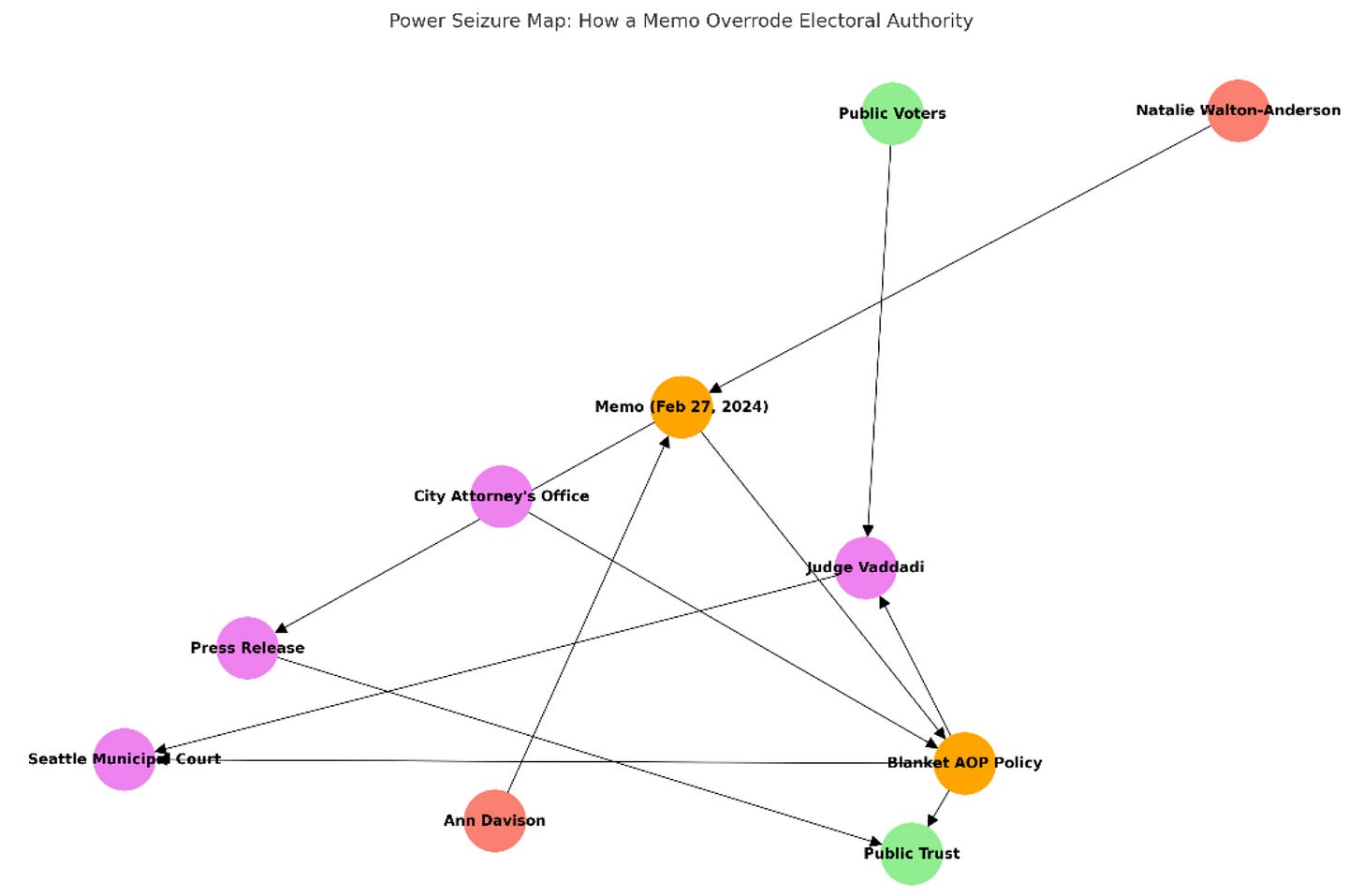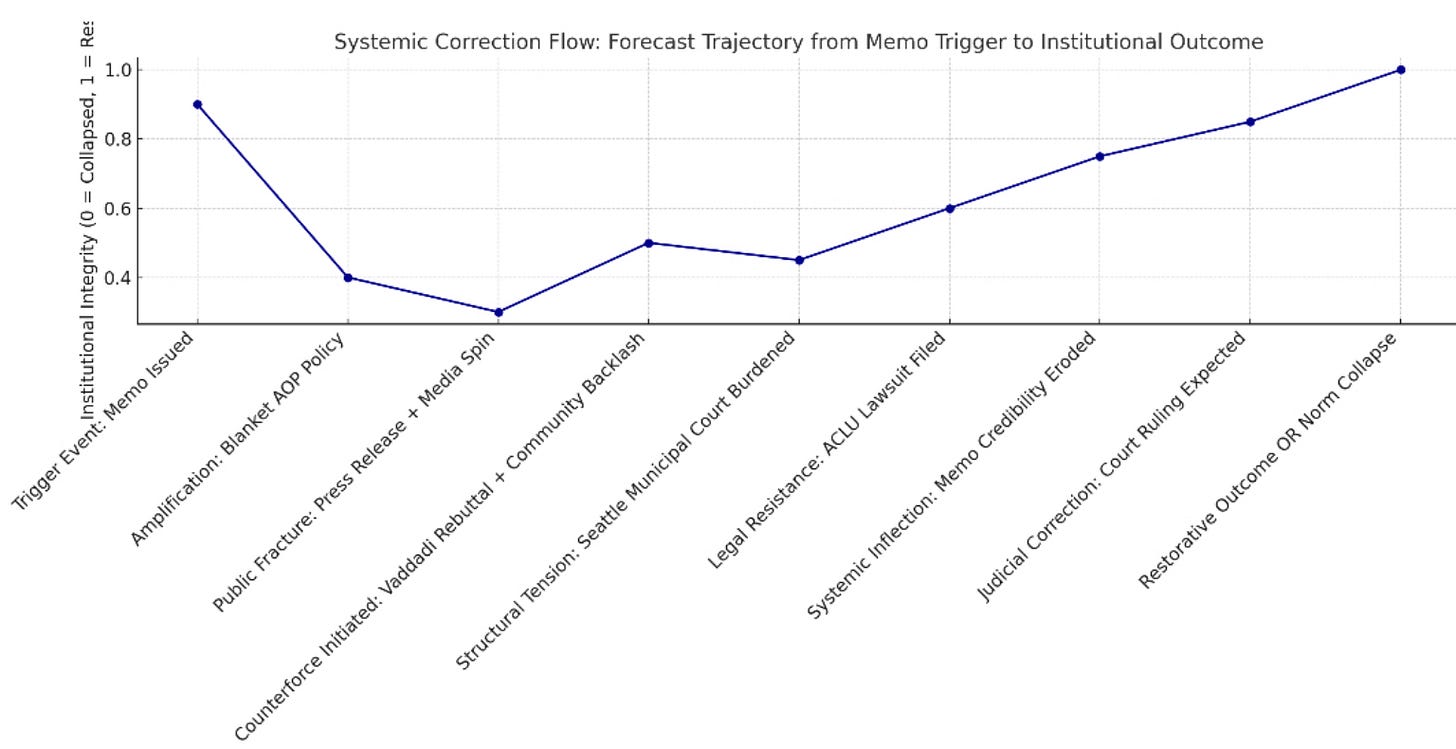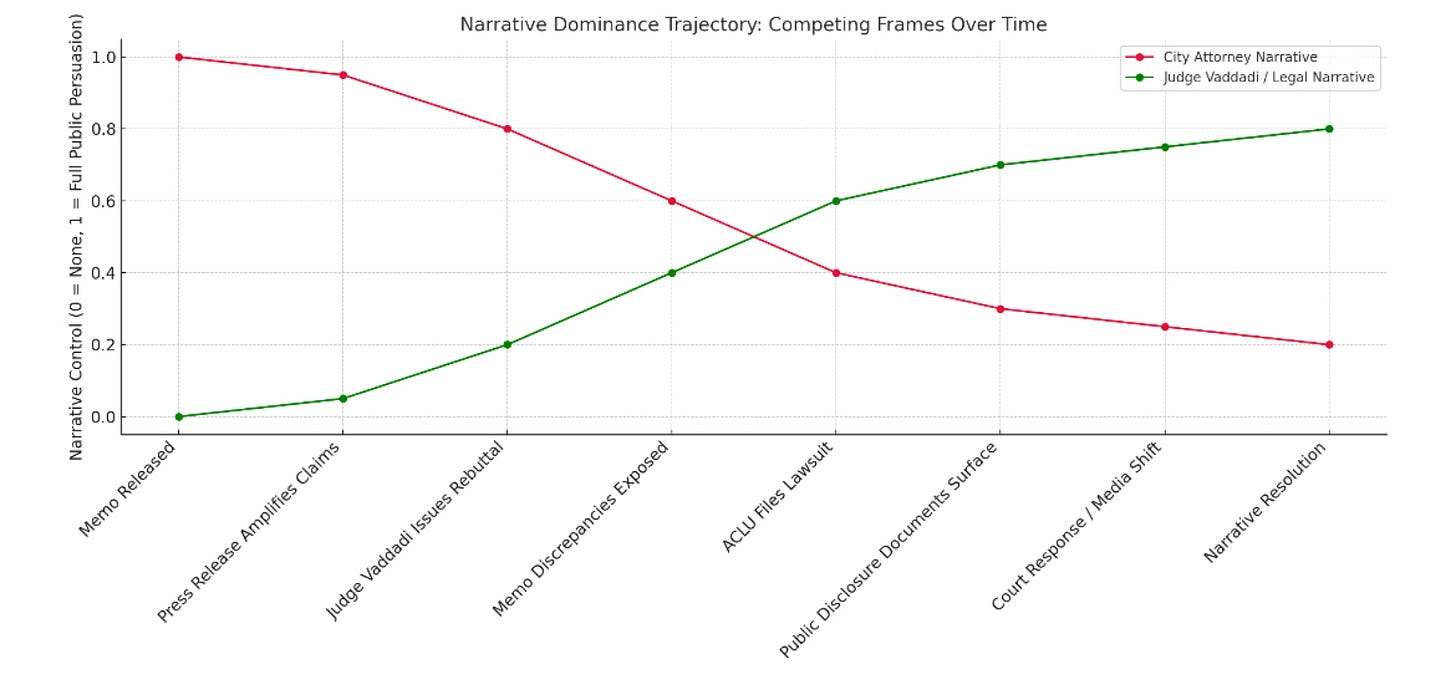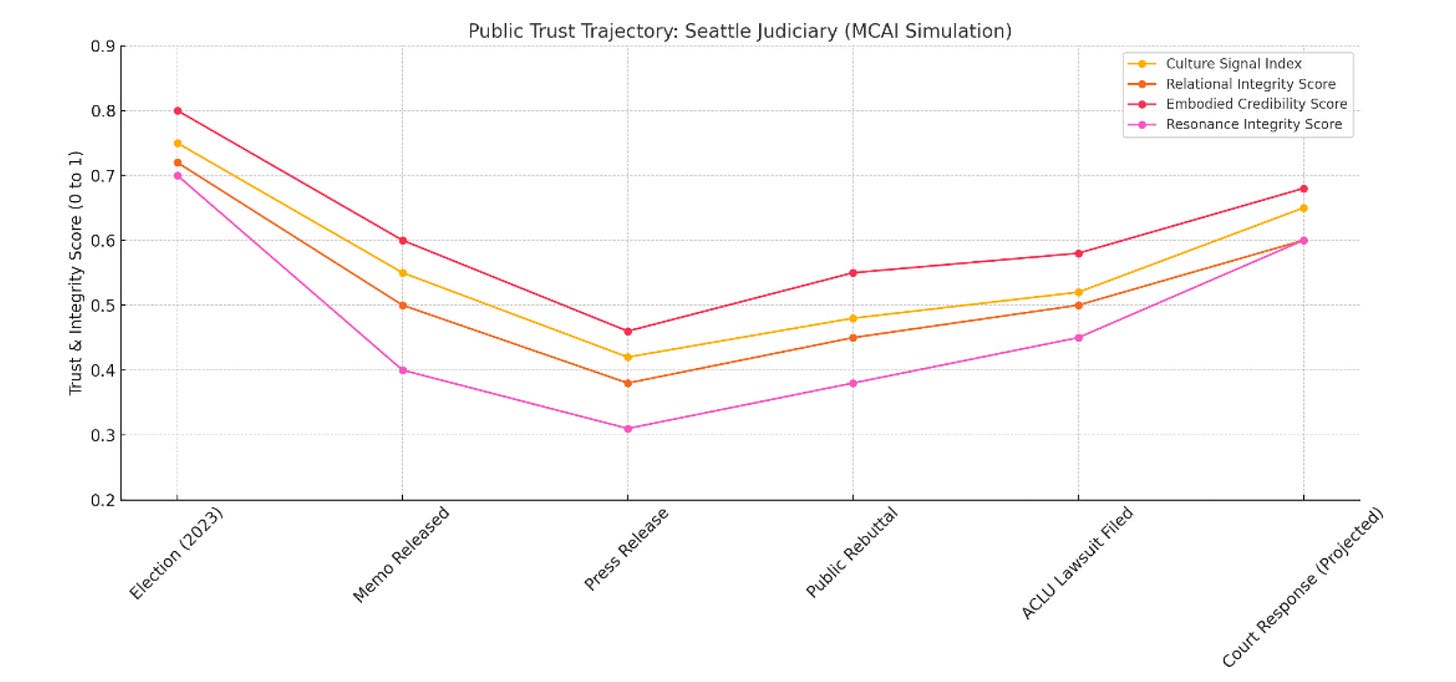MCAI Lex Vision: The Disqualification of Judge Pooja Vaddadi
Power Seizure, Narrative Engineering, Cognitive Digital Twin Forecasts, and Institutional Correction
I. Simulation Narrative
In February 2024, a memo written by Seattle criminal division chief Natalie Walton-Anderson and endorsed by Seattle City Attorney Ann Davison triggered a procedural cascade that effectively stripped Judge Pooja Vaddadi—an elected official—of her courtroom authority. The memo cited vague, unverified examples of alleged misconduct and was swiftly followed by a blanket disqualification policy, barring her from presiding over all criminal cases.
MindCast AI treats this event not as a localized legal maneuver but as a structural seizure—a test case in how executive discretion can override democratic processes under the veneer of due process. Through a sequence of Cognitive Digital Twin simulations, MindCast AI reconstructed not only what happened, but also how legal authority was displaced, public trust fractured, and causal legitimacy eroded.
II. Power Seizure and Narrative Engineering
Judge Vaddadi had recently ruled to disqualify a city prosecutor due to conflict of interest—an action legally upheld. Shortly after, a memo was distributed within the City Attorney’s Office containing misleading and fabricated summaries of her rulings. These examples were not routed through internal channels or appealed. Instead, they were used to justify a sweeping Affidavit of Prejudice policy that prevented Judge Vaddadi from hearing all criminal matters.
This policy bypassed the judiciary’s internal oversight, excluded case-by-case evaluation, and effectively reversed the outcome of a public election. It functioned as a form of narrative-based erasure, converting procedural discretion into a political tool.
MindCast AI’s Legal Vision analysis flagged these deviations as high-risk: the City Attorney’s Office had employed structural mechanisms without meeting the thresholds of procedural justification or transparency. The use of narrative artifacts (memo and press release) in place of formal charges or appeals triggered a breakdown in causal trust.
III. Civic Resistance and Simulated Ethical Rebuttal
Judge Vaddadi issued a formal rebuttal. She highlighted case-level inaccuracies and requested retraction. Civil rights organizations joined the pushback. The American Civil Liberties Union (ACLU) of Washington filed a lawsuit alleging that the blanket disqualification disenfranchised voters and undermined judicial independence.
MindCast AI simulations identified:
Ethical Integrity Breach: fabricated examples and failure to seek correction
Causal Signal Breakdown: narrative failed the thresholds of Action Language Integrity, Cognitive Motor Fidelity, and Resonance Integrity
Moral Simulation Alert: failure modes included narrative manipulation, exclusionary gatekeeping, and disproportionate harm based on identity
The same disqualification standard had not been applied to other judges who issued controversial rulings. No appealable record was generated. No cross-examination of facts occurred. In short, the simulations exposed that the memo operated more like a manufactured story than a legal review.
IV. Trust Collapse and Public Fracture
Simultaneously, MindCast AI’s cultural trust analysis registered steep public trust deterioration:
Cultural Signal Score fell below 0.42, indicating a fracture in democratic coherence
Relational Trust Score dropped to 0.38, reflecting weakened public connection with the judiciary
Embodied Credibility Score declined as the appearance of impartiality and independence collapsed
Social media attacks—including racially charged threats—followed the press release. Civic confusion emerged as no clear avenue existed for review or recourse. The judiciary, once assumed to be impartial and insulated from political volatility, now appeared vulnerable to discretionary silencing.
V. Dual Futures: Systemic Forecast Simulation
MindCast AI ran two parallel Cognitive Digital Twin forecast flows to project outcomes:
Scenario A: Affidavit of Prejudice Policy Is Upheld
Judicial officers reduce risk by avoiding contested rulings
Prosecutorial offices gain indirect veto power over judges
Voter confidence collapses; precedent is set for structural erasure without procedural cause
Scenario B: ACLU Lawsuit Prevails
Court rules the memo-based blanket disqualification unlawful or retaliatory
Legal norms and democratic authority are reaffirmed
Misleading narratives are reversed and civic trust begins to recover
The simulation trajectory showed judicial integrity bottoming out in early 2024, with a potential rebound dependent entirely on public legal accountability and court-based intervention.
VI. Final Assessment
This event represents more than a personnel dispute. It is a civic inflection point. The memo operated not as policy guidance, but as a narrative-engineered displacement device. MindCast AI's full simulation suite—legal analysis, ethical modeling, causal integrity, and cultural coherence—detects a synthetic override of judicial independence masked by administrative formalism.
MindCast AI classifies this as a Structural Risk: a moment when narrative claims and discretionary authority converge to bypass legal, electoral, and institutional safeguards.
VII. Directive
MindCast AI recommends:
A statewide forensic audit of judicial disqualification practices initiated by executive offices
Statutory reform requiring structural verification thresholds for narrative-based judicial exclusion
Public trust-building campaigns to restore confidence in judicial independence and democratic transparency
The future of judicial independence in Washington—and beyond—may depend on whether this misuse of narrative discretion becomes a blueprint or a breach to be corrected.
Prepared by Noel Le, JD. Founder | Architect of MindCast AI LLC






